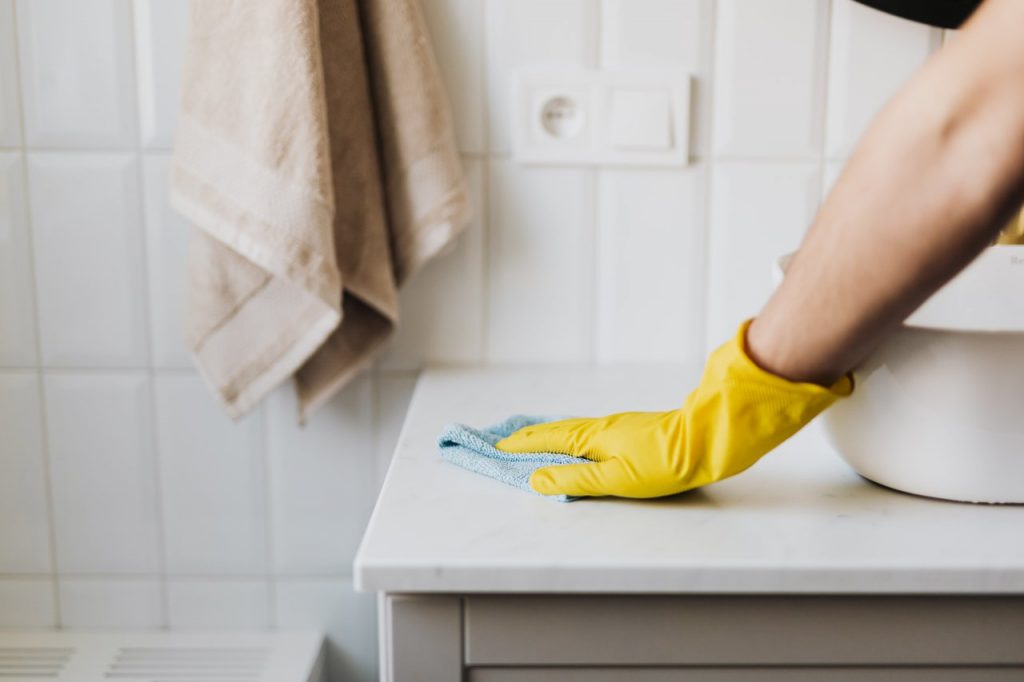
With the right precautions, it can be safe to hire someone to clean your home during the pandemic. Here are eight steps to follow when hiring and employing a housekeeper.
Your house needs a good cleaning. With everyone isolating as best they can and not many places to go, your family has been hunkered down at home more than usual the past several months.
While the pandemic is still a concern, you may be wondering when it will be safe for your housekeeper to return to work. Or to hire someone to clean your home.
With the right precautions, it can be safe to hire and employ a housekeeper to clean your home.
Here are some steps to follow when hiring and employing a housekeeper.
1. Check state and local orders
While most stay-at-home orders have been lifted, areas that experience a spike in cases may see a return of restrictions. A housekeeper may not be able to work in your home under certain orders. Make sure you are following the latest guidance from your state and local authorities.
2. Understand your family’s health
If someone in your home is sick, quarantining, or isolating due to COVID-19, then it does not make sense to have a housekeeper come to your home to clean. You could expose that person to the virus.
If you have recently traveled to a high-risk area or come in contact with an individual who is sick with the virus, you may want to hold off on having a housekeeper for a couple of weeks to reduce their chance of exposure to the coronavirus.
Another consideration is whether you or a loved one living in your home are at a higher risk of contracting COVID-19. Seniors and those with underlying health conditions need to take greater precautions and that may determine whether you hire a housekeeper.
If you have any doubts, ask your health care provider whether it’s safe to have someone working in your home.
3. Know your comfort level
How anxious would you be in bringing someone into your home right now? Getting your house cleaned should bring you relief, not additional stress.
4. Hire one housekeeper
Whether you are hiring on your own or through a cleaning service, you should only have one housekeeper at a time. That would be safer than employing a group of cleaners who will all be in your home at the same time. Ideally, if you trust your housekeeper, you should bring back to the same one for additional cleanings.
5. Review cleaning procedures
Your housekeeper likely won’t need to change their cleaning practices but it is still a good idea to go over their procedures. Surfaces and other high-touch areas like countertops, doorknobs, and faucets should be cleaned.
The Center for Disease Control and Prevention provides the following guidelines for cleaning and disinfecting homes and other facilities.
Ask about the products they plan to use for cleaning your home if you are not providing them. The Environmental Protection Agency has a list of disinfectants for use against COVID-19.
At a minimum, your housekeeper should wear a mask and gloves when working. You may want to require a temperature check before they enter your house.
If your housekeeper works in multiple homes, they should take steps to avoid cross-contamination and so they do not carry germs into your home. Best practices include wiping down bottles, vacuums, mops, and anything else they take from place to place. Vacuums should have their filters cleaned after each job and the housekeeper should change them more often.
Also, they should not use the same sponges for multiple homes.
For an extra level of safety, you could provide your own cleaning supplies and materials. Follow the same steps to clean, disinfect, and replace any tools and materials you are asking your housekeeper to use.
If your housekeeper will be in your home for several hours, they should take their breaks and lunch outside of your home.
6. Prepare your home
Open all your windows and doors before your housekeeper arrives. Keeping open ventilation can reduce the buildup of contamination.
If there are parts of your home that are not critical to be cleaned, you may want your worker to avoid those areas.
Make sure there is soap or hand sanitizer available for your housekeeper so they can wash their hands while they work.
After your housekeeper has left, wipe down any stair railings and doorknobs they may have touched as an added precaution.
7. Practice physical distancing
By now, we all know to try and stay six feet away from others to help prevent the spread of the coronavirus, which travels through droplets that can enter your nose or mouth. A best practice would be to leave your home when your housekeeper is cleaning. Take a walk or spend time in your yard.
If you are unable to do that, then stay in a different room to maintain your distance. Make sure you are wearing a mask if you will be closer than six feet from your worker. That way you can reduce the respiratory droplets that escape your nose and mouth.
8. Keep washing your hands
We also know that washing our hands frequently and avoiding touching our faces help prevent the spread of the coronavirus. Wash your hands before and after your housekeeper is in your home. If you’re leaving the house while your housekeeper works, wash your hands before you leave and then again when you are back home.
Download The Complete Guide to Household Payroll
Get our complimentary guide and learn everything you need to know about paying your employees legally and filing your taxes the right way.





 Get your free:
Get your free: